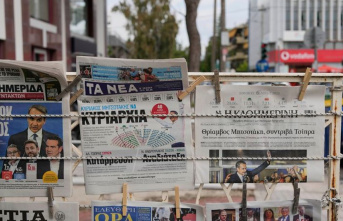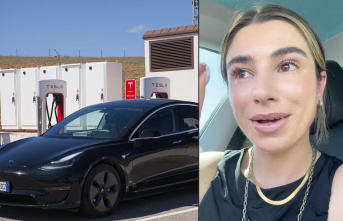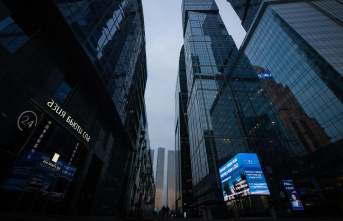In the process of an investor lawsuit against Tesla boss Elon Musk, lawyers for the two sides exchanged the first attacks on Wednesday.
The case relates to Musk's August 2018 tweet rushing to announce that he intends to take the electric car company public and has secured funding to do so. Later it turned out that there were no firm commitments from investors.
"Elon Musk lied," said a lawyer for the plaintiffs. These lies would have cost ordinary investors like his clients millions, he argued. It is undeniable that in reality the financing was not secured. And only Musk's tweets would have triggered the price fluctuations that would have caused investors to lose money.
Musk's attorney countered that the tech billionaire was definitely working to delist Tesla. There have also been positive signals from investors. Musk chose "the wrong words in a hurry" when tweeting. "It wasn't cheating, not even close," he said.
A central role in the class action lawsuit is played by the State Investment Fund of Saudi Arabia, which was supposed to be a key donor to the plan. Musk's side claims that a senior manager of the fund has offered extensive funding in conversations. The plaintiffs' lawyers point out that there were no agreements on this.
Lawyer: Musk responded to leaks with tweets
During the negotiations, the fund announced for the first time that it had acquired a stake of around five percent in Tesla and was interested in further acquisitions, Musk's lawyer said. Then this information was leaked to the Financial Times. Musk hastily responded to the leaks with his tweets and expressed himself awkwardly. But "what the words meant from his own point of view" was true. "His intentions were sincere," said the attorney.
First to be questioned was one of the plaintiffs, a 71-year-old from Kansas City. He testified that Musk's tweets prompted him to exit options on Tesla shares in a big way. He feared that the financial instruments would be worthless once Tesla went public. The plaintiff stated that the words "financing secured" were decisive for this decision. During the survey, Musk's lawyer repeatedly referred to a later blog entry by Tesla, which emphasized that the transaction was not yet done.
Judge Edward Chen found in the proceedings last year that Musk's statements in the tweets were not true. While the jury is made aware of this at trial, it is expected to evaluate whether those statements were relevant to investors - and harmed them by relying on them. They also need to determine whether Musk was aware that he was making false statements.







